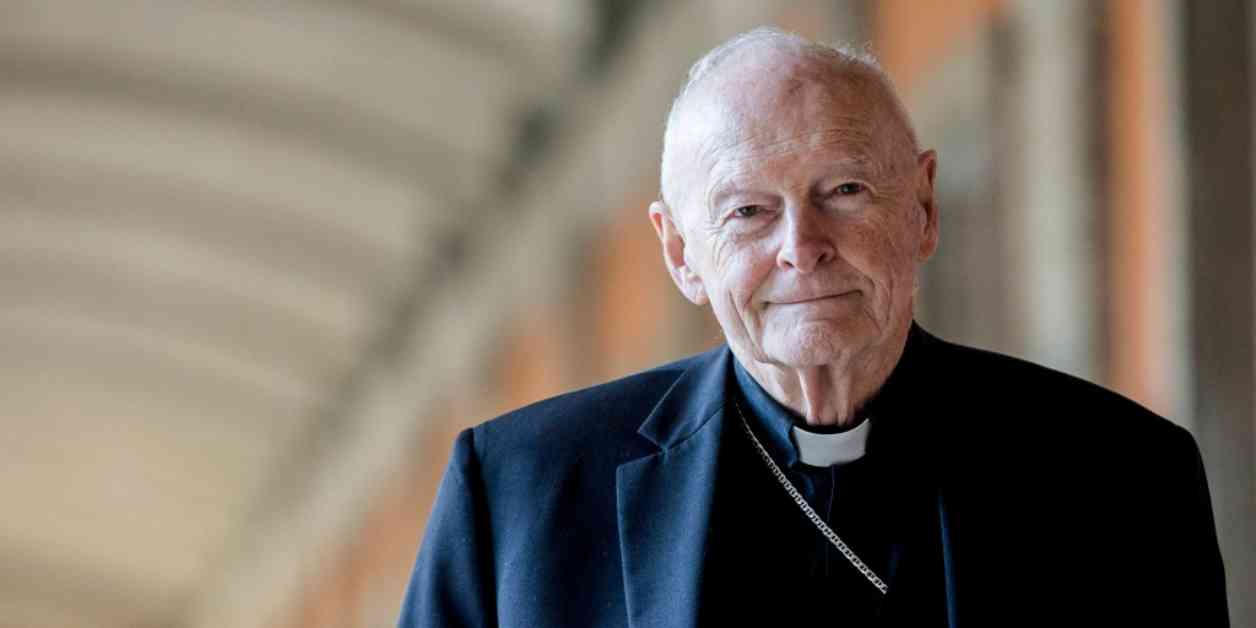Theodore McCarrick, a former Catholic cardinal who was defrocked by Pope Francis in 2019 due to allegations of sexual abuse, passed away at the age of 94, as confirmed by Archbishop of Washington Robert McElroy. McCarrick’s death has reignited discussions about the scandal that rocked the Catholic Church, shedding light on the complex web of complicity and deceit that allowed his misconduct to go unchecked for years.
A Fall from Grace: McCarrick’s Troubled Legacy
McCarrick’s once-sterling reputation was tarnished by a series of disturbing revelations that exposed a pattern of abuse and misconduct spanning decades. The Vatican’s investigation uncovered a deeply troubling history of sexual molestation involving both adults and children, leading to his unprecedented defrocking by Pope Francis. This seismic event not only marked the end of McCarrick’s career but also sent shockwaves throughout the global Catholic community, shattering the illusion of moral authority that had long defined the church’s leadership.
Despite mounting evidence of his transgressions, McCarrick’s ascent within the church hierarchy continued unchecked, fueled by his reputation as a skilled fundraiser and trusted advisor to three popes. The Vatican’s report laid bare the complicity of high-ranking officials, including the late Pope John Paul II, who overlooked credible allegations of misconduct in favor of preserving the church’s image. McCarrick’s ability to evade accountability for so long speaks to a broader culture of secrecy and denial that allowed abuse to flourish behind closed doors.
Lessons Learned: A Call for Accountability
The legacy of Theodore McCarrick serves as a cautionary tale for the Catholic Church and other institutions grappling with allegations of abuse and misconduct. His downfall underscores the urgent need for transparency, accountability, and a steadfast commitment to protecting the vulnerable from harm. As the church grapples with the fallout from this scandal, there is a growing recognition that meaningful reform is essential to rebuilding trust and restoring credibility in the eyes of the faithful.
In the wake of McCarrick’s death, Archbishop Robert McElroy issued a statement expressing sorrow for the pain and suffering caused by his actions. This moment of reflection offers an opportunity for the church to reckon with its past failings and chart a path forward towards healing and renewal. By confronting the dark chapters of its history head-on, the Catholic Church can begin to repair the damage done by those who exploited their positions of power for personal gain.
As we mourn the passing of Theodore McCarrick, let us not forget the victims whose lives were forever altered by his abuse. Their courage in coming forward paved the way for justice to be served and serves as a powerful reminder of the resilience of the human spirit. May we honor their bravery by holding accountable those who would seek to do harm and by standing in solidarity with all who have suffered at the hands of those entrusted with their care.
Theodore McCarrick’s death marks the end of a chapter in the Catholic Church’s history, but it also serves as a stark reminder of the work that remains to be done in order to ensure that such abuses are never allowed to happen again. As we look to the future, let us commit ourselves to creating a world where all are safe, respected, and valued—where the lessons of the past guide us towards a more just and compassionate future.














